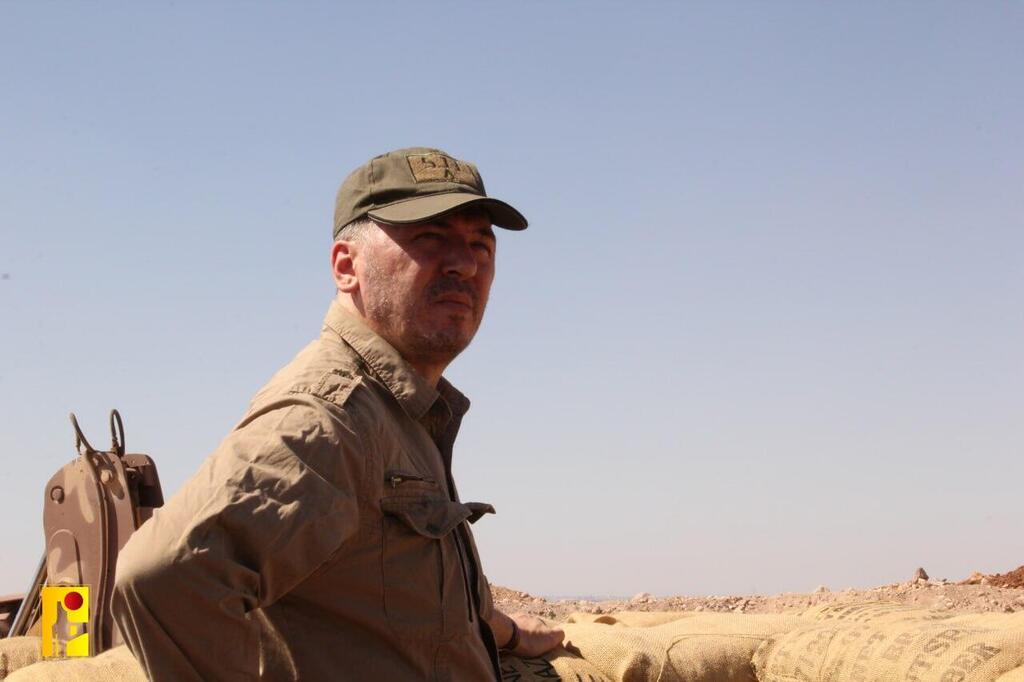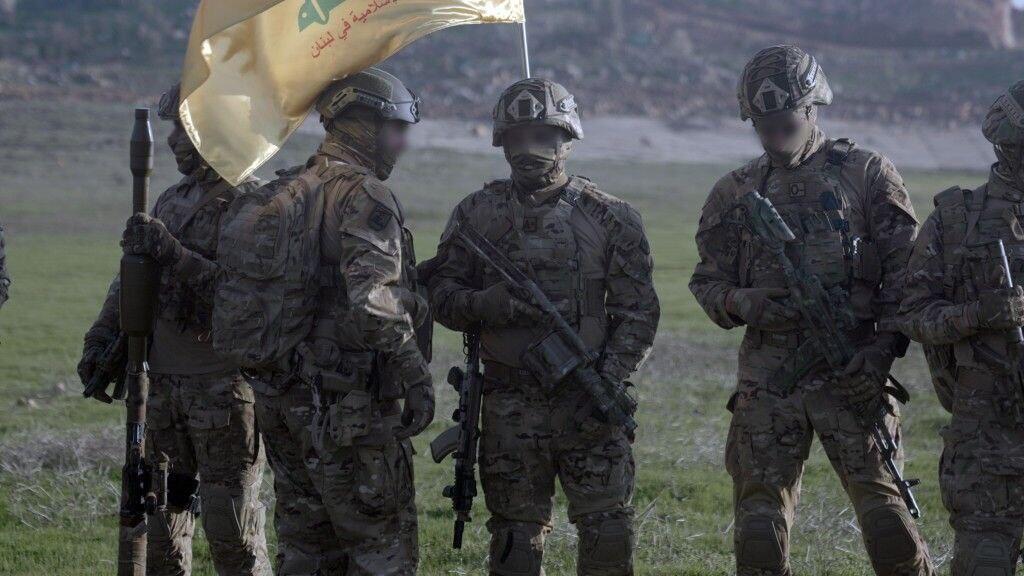The heavy barrages launched by Hezbollah across the entire Galilee region on Wednesday morning are a direct expression of the organization's leadership's anger and frustration over the assassination of Taleb Abdallah, the commander of Hezbollah's South Lebanon front.
Taleb Abdallah's rank was equivalent to a brigadier general in the IDF, comparable to a division commander, and he had been responsible for most significant attacks on Israeli territory from the Mount Dov area to Kiryat Shmona over the past 20 years, resulting in the deaths of IDF soldiers and Israeli civilians.
IDF strike on high-ranking Hezbollah commander Taleb Abdallah
(Video: IDF Spokesperson’s Unit)
Taleb Abdallah, also known as Abu Taleb, is the highest-ranking Hezbollah commander to be killed so far in the war. He commanded the Nasr region, which extends from the Israeli border to the Litani River, from Bint Jbeil eastward to Mount Dov—half of the South Lebanon sector. Under his command was the majority of Hezbollah's forces, especially its substantial firepower array in the area, which includes rockets, missiles, anti-tank missiles and drones targeting Israel. He was killed alongside three lower-ranking Hezbollah commanders in the village of Jouaiyya, near Tyre, where one of Hezbollah's main headquarters in South Lebanon is located.
Along with Abdallah, his deputy, his chief of staff and another commander in the sector were also killed, significantly impacting the command in the region. According to reports, they were killed during a security meeting they were holding, likely consulting on increasing firepower against Israel following an intense day of fighting in South Lebanon on Tuesday.
The battles in the north are part of the war of attrition that Hezbollah launched against Israel to assist Hamas on October 8. In this war, Hezbollah is trying to establish equations, one of which is that precise Israeli strikes on Hezbollah's command structure or critical military assets are met with large or medium volumes of fire, mainly targeting IDF military targets in the border area, as well as border-adjacent settlements in Israel, most of which are empty.
Wednesday's barrages, which are currently aimed at Tiberias, Safed and even deeper into Israeli territory, indicate that the targeted killing of the four senior Hezbollah commanders in the South Lebanon sector, particularly Abu Taleb, is a severe moral blow to Hezbollah, which feels compelled to respond swiftly and forcefully.
The assassination took place Tuesday just before midnight. Arab media reported that three precise missiles, likely launched from a fighter jet, struck the building where senior members of Hezbollah's "Southern Command" were gathered. Such an operation requires highly accurate intelligence and real-time target identification, indicating the improving capabilities of the IDF Intelligence Corps, particularly the Northern Command, to locate and strike moving targets with minimal or no collateral damage.
Besides dealing a moral blow to Hezbollah, the elimination of the four operatives will impact the organization's ability to manage the campaign in southern Lebanon, should the IDF launch a ground offensive in the area. The Nasr region, commanded by Abu Taleb, is Hezbollah's main ground warfare zone. From this area, its elite Radwan force is expected to launch an assault into Israel, under heavy fire from rockets, mortars, anti-tank missiles and relatively short-range drones.
In the Nasr sector, Hezbollah is positioned with its primary ground defense against an Israeli incursion. Abu Taleb was directly responsible for providing cover fire for the Radwan forces and halting IDF troops if they maneuvered into southern Lebanon.
The Radwan force was commanded by Wissam al-Tawil, a close associate of Abu Taleb, who was killed last winter shortly after meeting with his superior. Abu Taleb was highly experienced and, being from a village in southern Lebanon, was a respected leader among Hezbollah operatives in the border region. This development is significant. Hezbollah will likely respond with all available means and creativity, using rockets, missiles, explosive drones, mortars, anti-tank missiles and possibly cruise missiles.
Fires break out after Hezbollah rocket attack from Lebanon
(Video: Avihu Shapira)
The barrages Wednesday morning, which included over 200 rockets and missiles, might only be the initial salvos. Further attacks can be expected toward the Golan Heights and areas in western Galilee, such as Nahariya and possibly even Acre, which were not targeted in the morning barrage of Shavuot. It appears that Hezbollah chose to primarily target Tiberias, Safed and the Sea of Galilee and eastern Galilee region, as this was the main area under Abu Taleb’s command before his elimination.
However, it does not appear that Hezbollah is interested in causing a major escalation that would give Israel a reason to strike its strategic facilities and missile stockpiles deep within Lebanon. In fact, the organization and its Iranian patrons, as well as Israel, do not currently desire a full-scale war that would wreak widespread destruction in both Lebanon and Israel. The "playing field" defined by the current war of attrition in the north will likely remain within its present boundaries, as all parties have an interest in maintaining the status quo.
Additionally, there is a possibility of a prisoner exchange deal with Hamas in the south, which could also lead to a cease-fire. Hezbollah Secretary-General Hassan Nasrallah has already stated that when a cease-fire is reached in the south, he will cease fire in the north. The potential for such a cease-fire may cause Hezbollah to temper its response to Abu Taleb's elimination.
However, it is important for Israeli citizens to be aware that Hezbollah might attempt to escalate the situation by launching long-range missiles or drones. Although the probability of this is relatively low, the severe blow Hezbollah has suffered could affect its future ability to confront the IDF and might lead the organization's leadership to deviate from its established rules and equations.
Therefore, it is advisable to always know the location of the nearest bomb shelter or protected space, and to take a moment to think about where and how to proceed if an alarm sounds. We are likely facing several tense days ahead.






